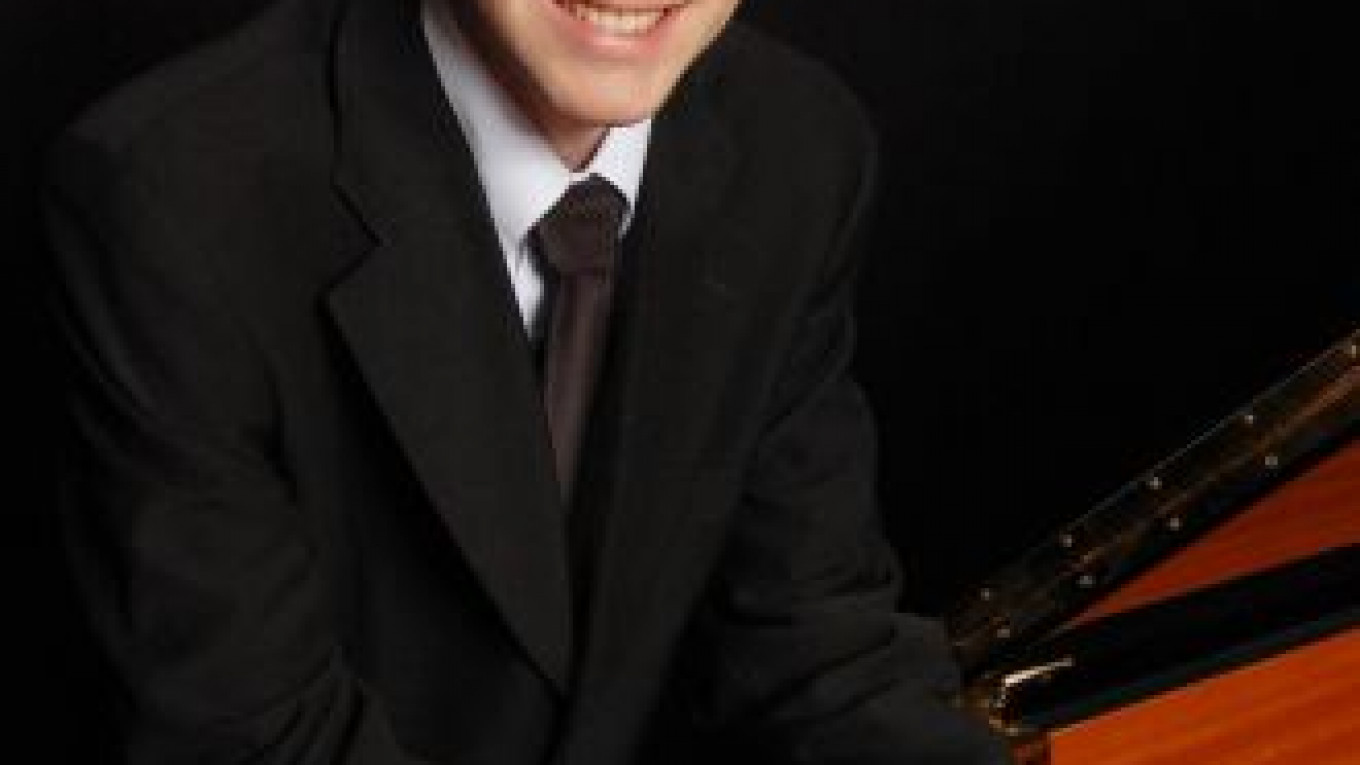Though he says he came late to piano, 17-year-old Jonathan Duarte is by no means an underachiever. After sweeping several international competitions, he is trying his hand at Moscow’s coveted pre-conservatory program.
Entering the Moscow Conservatory in February without knowing Russian was a brave move. But Jonathan concedes, “I came here for the adventure more than anything — learning a new culture, a new language.”
Jonathan, who is Canadian by nationality but grew up in Costa Rica, started playing when he was 9. “It was a hobby. I had one lesson a week and 20 minutes of practice daily,” he said. “Then when I was 14, I realized, hey, I could actually get serious about piano.”
Last year he won the Stanislaw Moniuszko International Piano Competition of Slavic Music in Lithuania and the International Competition of Romantic Music in New York.
“In Costa Rica there was a Russian music school which decided to take me in, even though I was starting late,” Jonathan said. After a year of hard work, his teacher advised him to consider playing professionally.
“I made the mistake of saying ‘yes,’” he joked, describing the increased workload after that. Upon completing three years at the Instituto Superior des Artes, he was ready to look for further study — and chose Moscow.
“Jonathan chose to go to Moscow himself. He said the level of competition there is much higher than anywhere else, and he’s probably right,” said Alexander Sklioutovski, Jonathan’s instructor at the Instituto Superior. “He’s that sort — very competitive. He seems to work best when he is challenged.”
“After those years, actually getting into the program here was the easy part,” Jonathan said. His Russian teachers were able to put in a good word, and having been exposed to the culture before arriving made things easier.
Sklioutovski said he’s confident that Jonathan will have no problem in his studies at the conservatory: “He could study anywhere.”
Jonathan made an unusual choice to come to Moscow — most of his fellow students in Costa Rica went to the United States or elsewhere in Europe — “because of the cultural similarities,” said Sklioutovski, who himself was born in Kyrgyzstan and did his piano doctorate at the Moscow Conservatory in 1973.
In Moscow, of 80 people in the same dormitory as Jonathan, about 30 of them are foreigners — mostly Korean, Japanese or Chinese — with one other Costa Rican among them.
“The most difficult thing about coming here has been making friends — because of the new language,” he said. “And particularly in the music school, it’s very difficult finding the few people who will speak to you in a friendly manner, seeing as we’re all so competitive.”
But he is enjoying the program. “They have very good teaching. I’d heard Russian piano teaching was some of the best in the world. I thought I’d come and test it out for myself, and I haven’t been disappointed!”
The instruction is all in Russian, and in addition to three hours of specialist piano teaching a day he has Russian practice and solfege: listening to music, writing it and “general ear training.” “The language is coming along. I can hold a conversation now,” he said.
“We play everything classical, from German music, Bach or Beethoven, to Chopin from Poland — there is a lot of Russian music, but we play everything!” Jonathan said.
There is no time for hobbies, and he does not know how long it will take him to complete the program. After finishing his piano practice — usually after 10 at night — he generally relaxes e-mailing, talking to people or occasionally going for walks in the city. With his heavy workload he says he hasn’t even managed to visit the Bolshoi yet — though he knows he should.
“Every time you’re walking in the school or conservatory you see a famous teacher or performer — they’re everywhere,” he said.
“In my dormitory every room has a piano — all you hear is music,” Jonathan said. “It’s amazing, but you go crazy after a while. We’re banned from playing any instruments after 10 p.m.”
Though he arrived here while the weather was still sub-zero, he has his first real Russian winter to look forward to. What does he think of Moscow? “Russia’s a hard place to live. Moscow’s a very interesting place to be, but once I’ve finished my studies here, if I don’t have a reason to stay, I won’t.”
Costa Rica? “No, it’s a bad place to be a musician. In the U.S. or Europe is better.”
A Message from The Moscow Times:
Dear readers,
We are facing unprecedented challenges. Russia's Prosecutor General's Office has designated The Moscow Times as an "undesirable" organization, criminalizing our work and putting our staff at risk of prosecution. This follows our earlier unjust labeling as a "foreign agent."
These actions are direct attempts to silence independent journalism in Russia. The authorities claim our work "discredits the decisions of the Russian leadership." We see things differently: we strive to provide accurate, unbiased reporting on Russia.
We, the journalists of The Moscow Times, refuse to be silenced. But to continue our work, we need your help.
Your support, no matter how small, makes a world of difference. If you can, please support us monthly starting from just $2. It's quick to set up, and every contribution makes a significant impact.
By supporting The Moscow Times, you're defending open, independent journalism in the face of repression. Thank you for standing with us.
Remind me later.






